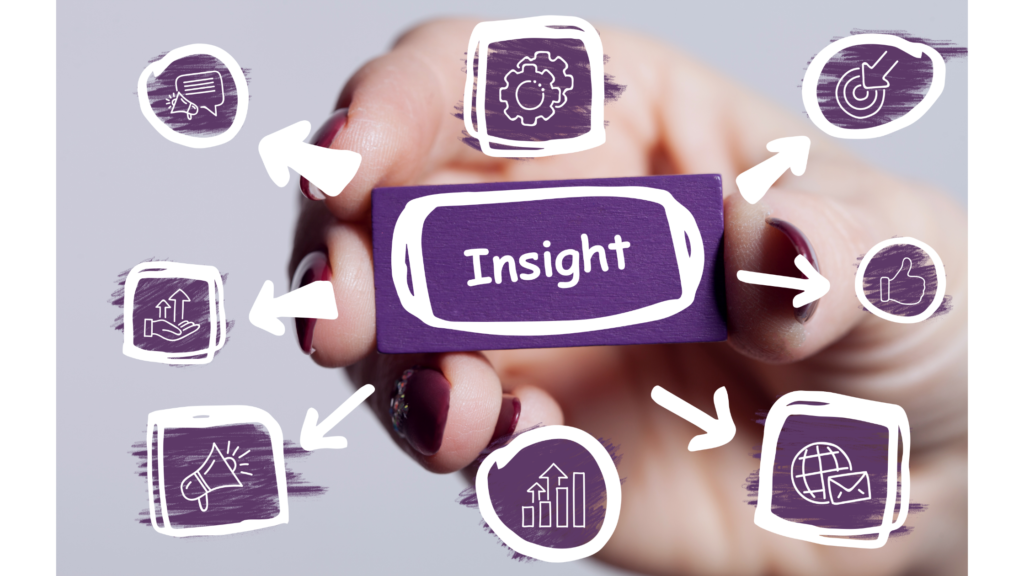B2B marketing is dramatically changing.
The last 18 months have seen seismic shifts and as a result, a massive push to digital marketing strategies.
Gone are the days of relying on physical events to market products and drive lead gen. Marketers are being forced to adapt to this new reality and fortunately, they are adaptive.
One strategy catching fire is B2B influencer marketing because it addresses several challenges at once:
- Building brand affinity
- Standing apart from competitors
- Driving demand
However, because B2C dominates the influencer marketing conversation in the media, many B2B companies are unsure how to work with influencers.
In this post, I will show you how b2b companies work with influencers to get business results.
Buyers Want Content that Helps Them
Giving your audience the content they want and need is key to all good marketing today.
So when you see long, detailed content on websites like HBR or Forbes it’s created because business professionals want to read this kind of information.
For example, HBR publishes articles that are often 6000+ words long with many charts and graphs. They provide value by sharing in-depth knowledge about trends, technology, tools, and strategies.
The reason why this type of content is produced and published is that readers consume it otherwise they wouldn’t.
Influencers do the same thing – they produce high-value, long-form content their audiences crave.
Examples include podcasts, videocasts, articles, blog posts, and infographics.
Additionally, long-form content is searchable for months even years which means it helps your buyers find you.
Buyers Want Practical, Useful Content
Many b2b marketers spend significant cycles on content marketing for their companies.
They publish blog posts, infographics, white papers, podcasts, case studies, and eBooks.
Unfortunately, much of this content never gets consumed by their ideal customers because it lacks the practical value they desire.
It’s not valuable because it doesn’t address the challenges and realities their buyers are facing.
Instead, many companies talk “at” their audiences by trying to convince them their products are the best rather than “to” them by offering tips, tricks, and practical solutions to help them.
Influencers because of the nature of what they do, publish content that gets consumed by their followers and therefore it makes an impression.
Companies working with influencers benefit by being included in conversations about issues, challenges, and trends affecting the marketplace.
So, let’s look at how B2B companies can work with influencers to solve this problem.

Better Content, More Trust, and Distribution
Creating and publishing content is the lifeblood of influencers and integral to being one.
But there’s more to influencers than their content. They have trust with their audiences and in the B2B arena are considered authorities in their given industries because they are steeped in them. Many have many years of practical experience working for companies in management, product development, implementation, administration, and consulting.
Unlike the consumer business where many Hollywood celebrities are considered influencers, B2B influencers are analysts, business consultants, pure content creators, public speakers, book authors, coaches, and advisors.
And where B2C influencers are valued for the size of the social followings (sometimes in the millions) B2B influencers have comparatively small but focused followings.
But don’t let their small social followings fool you. Their followers are focused, often highly engaged, and looking to buy products that can solve their business problems.
Therefore, by working with B2B influencers, you can co-create content that addresses your buyers’ challenges and helps them solve real-world, practical problems. You also leverage the trust they’ve built with their audiences – and this is something that’s hard to put a price tag on.
The last thing to consider is distribution.
Influencers have their own distribution channels which are often more effective than any company. They interact with followers through email, DM, text messages, social media platforms, and private groups – all places your buyers are found.
Working with influencers gets you access to their distribution channels and therefore, places you squarely in front of your ideal buying audiences.

Many Influencers are Independent Analysts
Many B2B influencers operate as analysts on their own, independent of any industry analyst firm. Sometimes they operate with a couple of others.
Historically, they have either worked at an analyst firm at some point in their career and are now out on their own, or they simply have deep knowledge and experience of a business vertical within an industry.
Companies can leverage this expertise by hiring influencers to help with determining what they need in their tech stack, go-to-market strategy, and to gain insights into their customer audiences.
Another way to use independent analysts is to hire them to co-host webinars and online events.

Influencers Speak at Industry Events
Traditionally B2B companies market by attending and holding events.
In fact, the majority of their marketing budgets are allocated to holding and attending events.
However, since the Covid-19 pandemic, a radical shift to other marketing strategies has taken place including content marketing, social media marketing, social selling, and influencer marketing.
Events, however, have not completely gone away.
Virtual events are now widely accepted and will remain a viable tactic until in-person events return. Even then, most events will likely be a blend of in-person and virtual.
In both cases, influencers are hired as keynote speakers, as moderators of panels, to participate in PR activities including podcasts and videocasts.

Get Market Insights and Intelligence
Because influencers are usually experts in their respective industries, they have insights and market intelligence to share with companies willing to engage them.
Also, influencers often communicate with their followers as well as other influencers which means they regularly gather information not easily obtained through focus groups and market surveys.
Because they have their “ears to the ground,” they have an understanding of the challenges facing your customers, insights into new technology, and trends in the industry that are starting to take shape.
Smart companies hire influencers to glean this information so they can use it to their advantage.

Establish an Advisory Council of Influencers
Some B2B companies invite select influencers to participate in an ongoing council to help them plan roadmaps, glean information about buying audiences, and spot market opportunities.
When the advisory council meets, include in-house subject matter experts from business development, marketing, engineering, and the executive team to give them a broad and deep understanding of your organization, its people, and goals.
Briefings like these help the influencers to understand your company’s value prop, buying audience, and where it fits within the stack.
You can also bounce ideas off of the influencers to help you streamline marketing processes, improve products and even refocus your teams.
For example, if the engineering team is identified as a key area needing insights about the marketplace, bring them into the conversation with the influencer council so they can shed light on what your company is doing, and in turn, learn from the influencers.
Putting It into Practice
Finding the right influencers is a big key to success with any of the above activities.
Identify high-quality candidates and learn what makes them influential to your audience by using tools like Thinkers360, Followerwonk, BuzzSumo, Onalytica, or Respona.
Next, look carefully at their content and its quality along with their social media engagement.
Pay attention to the comments their content gets and who is doing the commenting.
Look carefully at what kinds of questions followers are asking.
Does the influencer answer those questions in the comments? This is usually an indication of how engaged the influencer is with his or her audience.
Knowing your ideal buyers is a must including what kind of content they like to consume. Do they like the influencer’s content?
Use tools like Sparktoro to help you discover this.
Once you’ve built a list of influencers, follow them on social media and engage with their content there.
Finally, reach out and introduce yourself. Let them know who you are and where you work.
Ask them if they are open to working with your company.

Build Relationships with Key Influencers
Building a relationship isn’t done overnight. It’s not done in real life nor is it done with influencers online.
It takes time to establish trust, so build that into your equation from the beginning.
Once you do a project or two together, share useful content with the influencer by including them in some of your press and analyst briefings.
Encourage them to share content on social media and use Sparktoro to track how many people interact with it there. You’ll get an idea of how much influence they have over your ideal buyers.
As time goes on, you can adjust your strategy based on your results from previous campaigns.
Wrapping Up
The important thing is to work with the influencers your buying audiences follow and trust.
By working together, your influencers will be able to produce content about your company that your audiences value.
Feel free to share your experiences with the rest of us in the comments section below.
Need help?
We can help your company select the right mix of influencers, build a strategy and create a campaign targeted to your buyers.



Pingback: 13 Future Trends of B2B Influencer Marketing to Watch - // 551 Media LLC
Pingback: How to Leverage Influencer Relationships for B2B Campaign Impact - // 551 Media LLC
Pingback: How to Master the Art of Nurturing B2B Influencer Relationships - // 551 Media LLC
I particularly loved the real-life case studies and examples that showcased the tangible impact of influencer collaborations. This article is a must-read for any B2B marketer looking to harness the power of influencers to drive meaningful results. Kudos to the author for shedding light on this essential aspect of modern marketing!